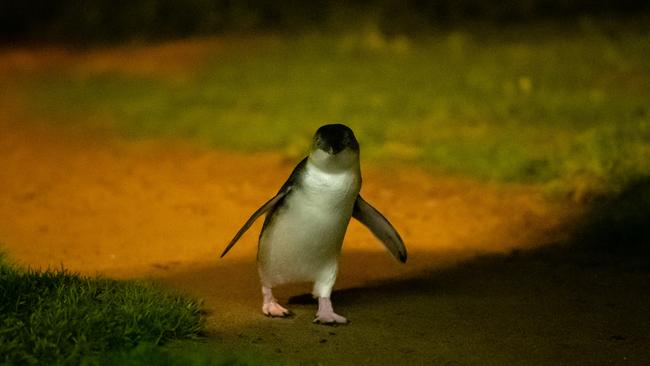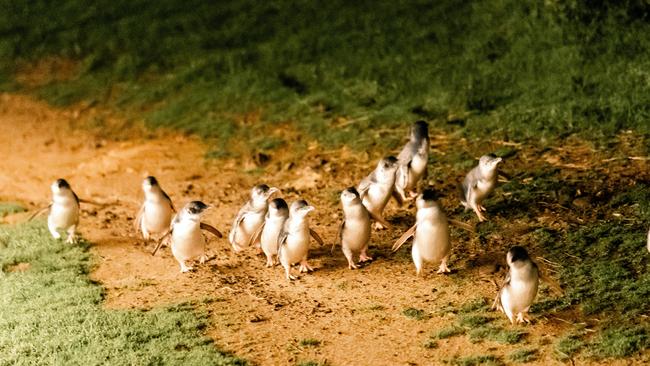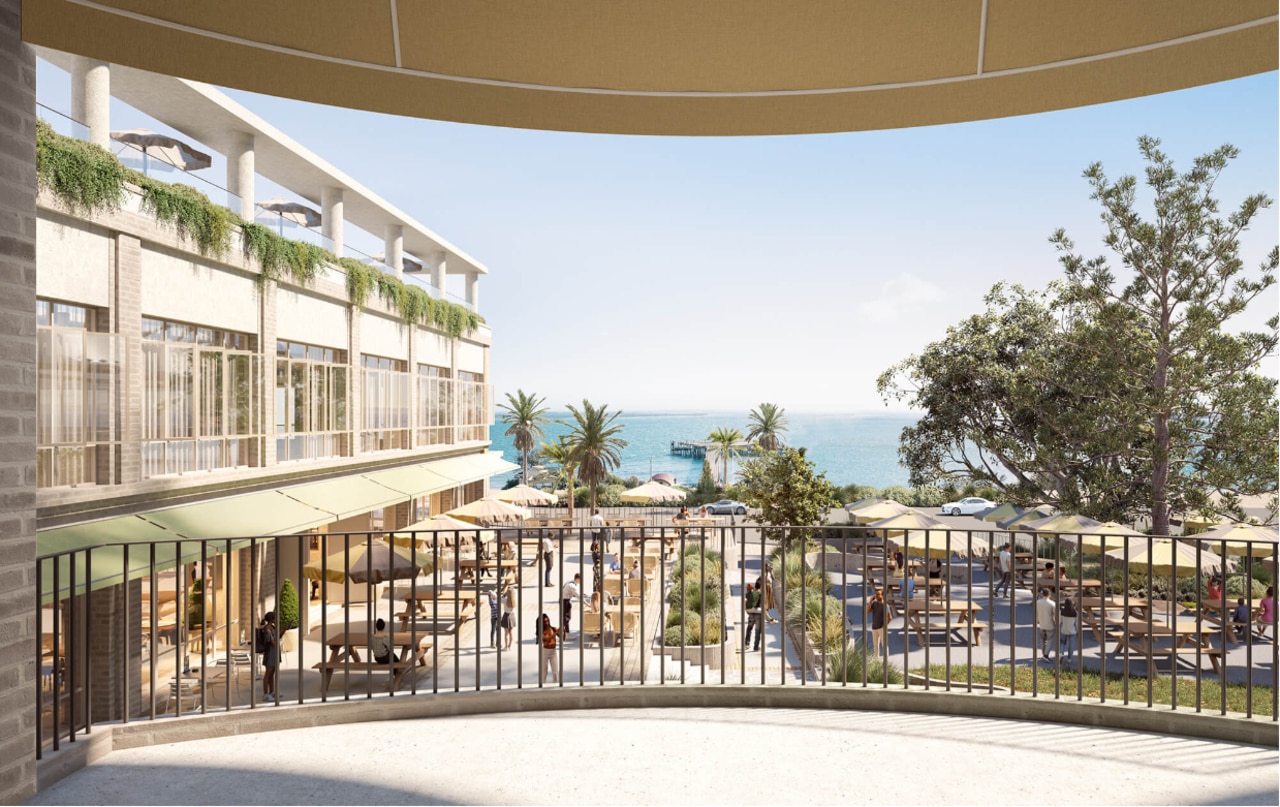New project set to being to protect little penguins from climate change threats
Volunteers will plant more than 10,000 penguin-friendly plants on Phillip Island in an effort to protect the animals from heat stress and bushfires.

Bass Coast News
Don't miss out on the headlines from Bass Coast News. Followed categories will be added to My News.
The biggest conservation effort to safeguard Phillip Island’s little penguins in more than 40 years is underway.
In an Australian first, Phillip Island Nature Parks has conducted research to inform plans to protect the iconic creatures.
Using heat mapping, “hot spots” on the Summerland Peninsula have been identified with work now beginning to modify penguin habitat to reduce flammability and land temperatures as a result of climate change.
Ranger in charge Ben Thomas said increased penguin mortality due to more severe and frequent heat stress events and destructive bushfires had been a driving force for the holistic initiative that would “future proof” the species.


“Green firebreaks” made of vegetation will be built to help safeguard the little penguins at three locations in Manndeville Rd, Portslade Rd and Solent Ave in the former Summerland Estate.
Nature Parks will remove sections of overabundant melaleuca scrub, which inhibit biodiversity and penguin friendly vegetation, and replace it with bird succulent herbland species such as Bower spinach.
After this is completed volunteers will start to revegetate the sites by planting more than 10,000 penguin-friendly plants in late autumn and early spring.
“We have an important role to play in securing the future of the species. That means doing all we can to protect these treasured animals,” Mr Thomas said.
“The reality is climate change is making heat stress events and bushfires worse. These are more frequent, more intense and more dangerous.
“The modified vegetation structure has the ability to greatly reduce the speed and intensity of a bushfire, and importantly would provide emergency services more time to respond, giving our little penguins the best chance of survival in the event of a fire.”
Mr Thomas said controlled burns and large, cleared firebreaks were not practical on the Summerland Peninsula due to the risk of harm to the Little Penguins, their burrows and the habitat.
In the 1980s, the Victorian Government brokered the largest residential buyback in the state’s history, purchasing 774 housing and other lots in the Summerland Residential Estate to protect the state’s beloved penguin colony from extinction.
The buyback coupled with dedicated conservation measures by Nature Parks has helped penguin numbers on the island grow from 12,000 in the 1980s to 40,000 birds today.
Phillip Island Nature Parks was awarded $227,000 from the state government’s Risk and Resilience Grant Program for its ‘Future Proofing Little Penguins’ initiative.




